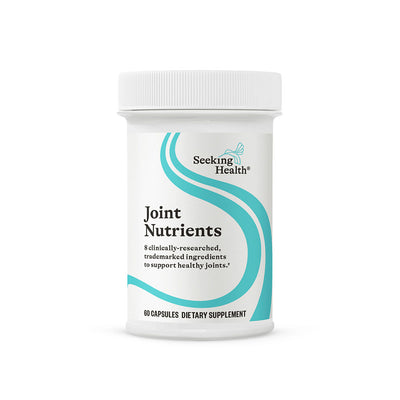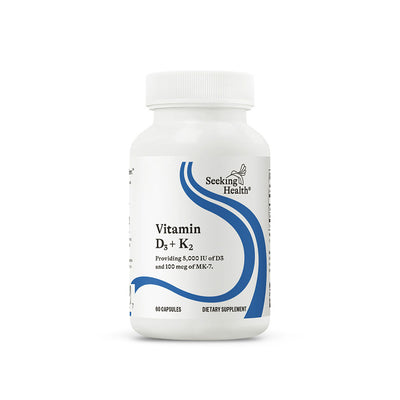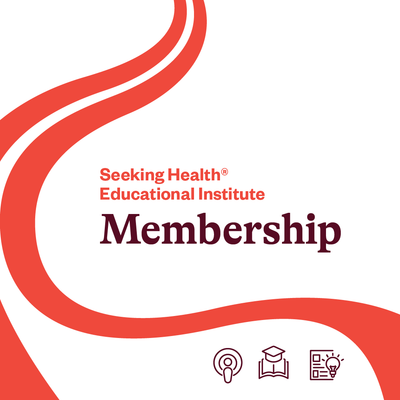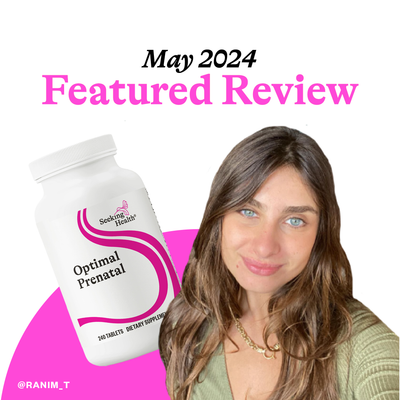More than 13 million Americans of reproductive age are impacted by fertility issues. That’s 9 percent of men and 12 percent of women in that age group. (1, 2)
Infertility itself can happen as a result of numerous conditions, diagnoses, and problems. Sometimes people have multiple factors. Infertility can sometimes be resolved using natural lifestyle changes. Other times it requires medical treatments or IVF.
No two people have the exact same fertility situation because no two people have the same genes. Fertility, like other health issues, are highly individualized to the person’s genes, health, lifestyle, and more.
A lot has been written about ways to naturally improve fertility. From diet to condition management, people want to know how they can take control over something that feels challenging.
Supplements can play a role in natural fertility management.† Some of them have been well-researched. Others, not so much.
This post will take a closer look at supplements with proven benefits for healthy male or female fertility.† You should always consult your healthcare provider before you start taking supplements. But this is a guide to give you some basic information as well as to explain why certain things, like formulation and dose, can make a big difference.
Can Supplements Really Impact Fertility?

The answer is not straightforward as to whether supplements benefit fertility for everyone. Most studies look at a certain supplement in the context of either male or female fertility. Sometimes control groups are not used. Sometimes sample sizes are very small, making it hard to figure out whether the information translates to a larger percentage of the population. Other times studies are confounded with bias, like being funded by someone who manufactures supplements.
Ultimately, we have to consider the best quality research there is for any given supplement. New research is being done all the time. Perhaps someday there will be more definitive, large-scale studies done on virtually every supplemental nutrient. For now, we consider the following supplements that have decent evidence supporting their use for certain aspects of supporting healthy fertility.†
Each section below notes whether the supplement was studied for men or women (or both), what it is, and how it’s supposed to benefit fertility. The following are 10 of the most commonly used and well-researched supplements.
10 Best Fertility Supplements
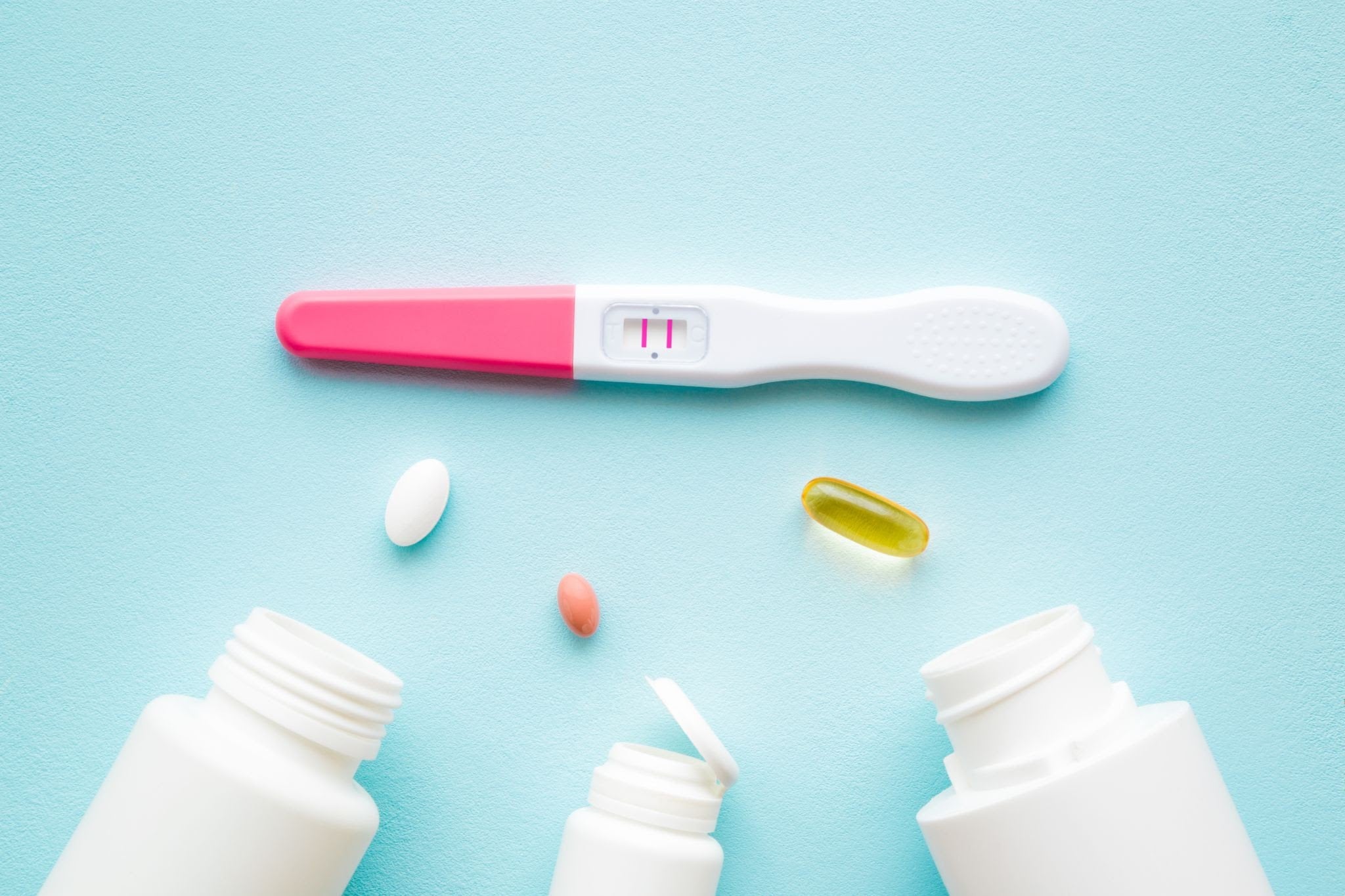
Not all dietary supplements are created equal. While there are loads of articles about how to support healthy fertility, the supplements listed here are evidence-based. When paired with a healthy diet and lifestyle, they may help get you one step closer to that positive pregnancy test.†
1. Folate (Not Folic Acid)
What it is: Folate is also known as vitamin B9. It’s a water-soluble vitamin that is found in foods like leafy green vegetables, citrus fruits, peas, and beans. It is sometimes used interchangeably with folic acid, but they are not the same. Folate is required for converting homocysteine to methionine, a catalyst for healthy methylation. (3)
Folic acid is the man-made version of this nutrient that isn’t as absorbable or bioavailable. For people with MTHFR variants or methylation challenges, folate from foods as well as activated folate supplements are best for absorption. L-5-MTHF (methylfolate) is a methylated version of folate that is more readily available. It can be taken by anyone whether or not they have MTHFR variants.†
Folinic acid is another bioavailable, but not methylated, form of folate that is great for people who are sensitive to methylated nutrients like methylfolate.†
Who it’s for: Men and women. While most prenatal or fertility advice says that women need folate to prevent neural tube defects, it benefits men, too.† (3)
Fertility benefits: Folate is essential in the crucial first days and weeks of pregnancy to reduce the incidence of neural tube defects. (4) It’s also important for supporting healthy methylation in both parents prior to conception. Since it takes approximately 90 days for both eggs and sperm to fully mature, it’s an important nutrient to take long before pregnancy is achieved. (It’s also important for anyone not trying to conceive, too.) Folate is required for healthy cell division—an essential component of producing healthy eggs and sperm. The chromosome copied from parents for creating an embryo will also contain information about methylation and cell replication, so you want to pass on a good “copy” of this. (3)
2. Zinc
What it is: Zinc is an essential mineral. It is necessary for cellular metabolism, immune function, protein and DNA synthesis, and more. (5) The body can’t store zinc, unlike other minerals, so it needs to be consumed daily. It’s found in food sources like beef, pork, chicken, and pumpkin seeds. It can also be supplemented.
Who it’s for: Women and men.
Fertility benefits: Zinc is typically regarded as an important nutrient for male infertility and male fertility. It can support sperm quality and healthy fertilization rates. (6) For women, it supports good egg quality, which can improve fertilization. Women who are low in zinc may have a longer time to conception. (7) Zinc is also vital for normal fetal growth and development during pregnancy since it’s needed for cell division and DNA synthesis.† (5)
3. Selenium
What it is: Selenium is a trace mineral. It is required for normal thyroid hormone production and DNA synthesis. It also supports the body’s healthy response to oxidative damage and a healthy immune system. Selenium is naturally found in foods like Brazil nuts, tuna, halibut, sardines, and ham. (8)
Who it’s for: Men and women.
Fertility benefits: Selenium is required for more than 24 proteins that are vital for reproduction in both men and women. Its role in normal thyroid function also makes it important for fertility, since healthy thyroid levels are required for sustaining a pregnancy. (9) Low levels of selenium can result in fertility problems. It may contribute to miscarriage risk, poor semen, and reduced sperm motility. (10) Selenium may also support healthy follicle ripening and egg maturation. (11) Because sperm is prone to oxidative damage, antioxidants are vital for protecting it. Selenium, along with other antioxidant supplements like vitamin E, has a protective effect that can promote healthy semen and sperm.† (12)
4. Coenzyme Q10
What it is: Coenzyme Q10 (CoQ10) is a vitamin-like substance. Chemically, it is structurally similar to vitamin K. It’s required for many different functions, like providing energy to cells and functioning like an antioxidant. It is found in small amounts in certain foods, like meat and fish. (13)
Who it’s for: Women and men.
Fertility benefits: Supplementing with coenzyme Q10 before fertility treatment may help to support healthy ovarian response in women. (14) It may also support healthy sperm concentration and motility. (15, 16) While coenzyme Q10 isn’t proven as a guaranteed way to increase live birth rates, there is enough potential benefit for preconception health that many fertility doctors recommend its use.†
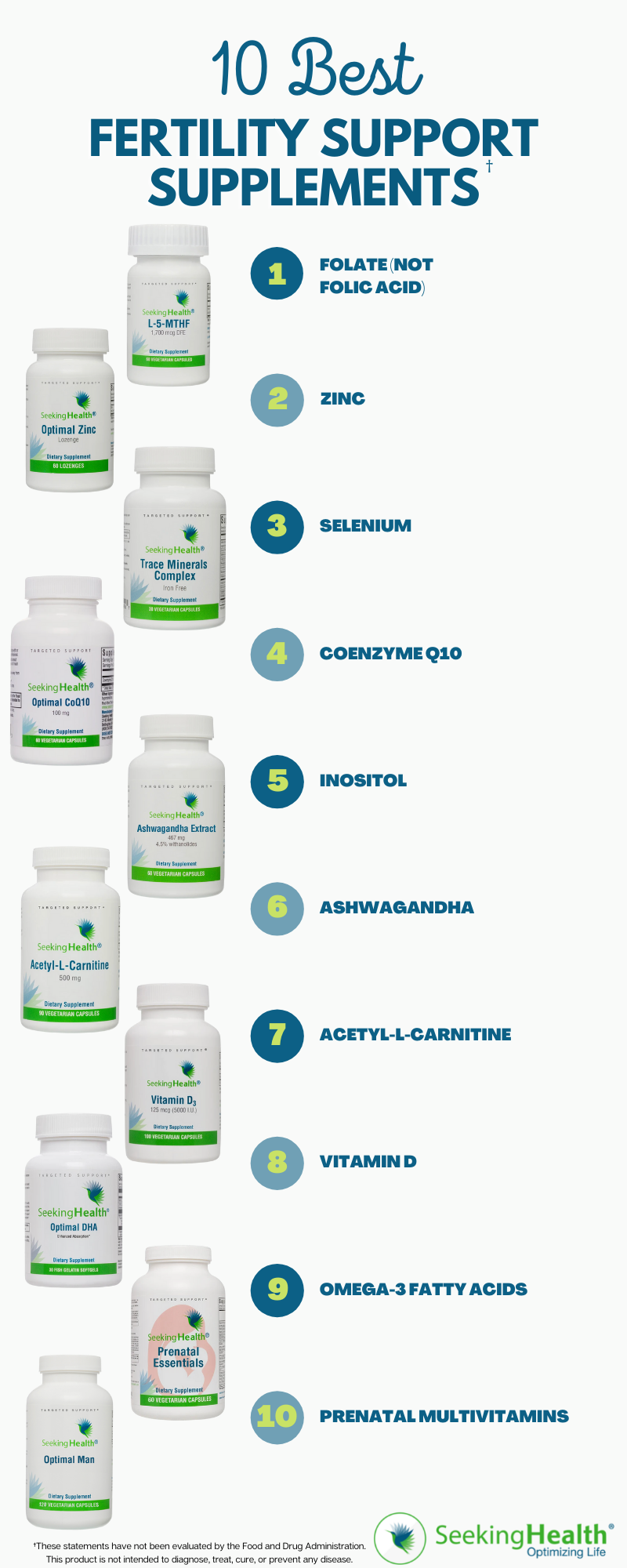
5. Inositol
What it is: Inositol is a sugar alcohol and pseudovitamin that is similar to the B vitamin family. The body can produce it on its own, and it can also be found in some foods like meat, citrus fruits, and legumes. Myo-inositol is the most common stereoisomer form found in supplements.
Who it’s for: Women who have PCOS.
Fertility benefits: Myo-inositol is primarily used to support fertility in women who have PCOS (polycystic ovary syndrome). It can support healthy lipids, blood pressure, and insulin response—all common challenges for women who have PCOS. It can also support normal glucose utilization, ovulation, egg maturation, and rates of pregnancy.† (17, 18)
6. Ashwagandha
What it is: An adaptogenic herb, ashwagandha is commonly found in stress remedies. It has been used in Ayurvedic medicine for hundreds of years.†
Who it’s for: Men.
Fertility benefits: While ashwagandha has plenty of benefits for women outside of fertility, research has not found any for women that specifically relate to female infertility. For men, the evidence is limited, but indicates that taking it for about three months can have some benefits relating to stress, hormone levels, sperm count, and motility when compared to a starting point. (19) It can also support better hormone balance, improving fertility in men where stress is a related factor.† (20)
7. Acetyl-L-Carnitine
What it is: Acetyl-L-Carnitine is an acetylated form of the amino acid l-carnitine. It can naturally be found in the body and taken as a supplement.
Who it’s for: Men and women.
Fertility benefits: Acetyl-l-carnitine may support sperm motility in men and functions as an antioxidant that can be protective of sperm health. (21) For women, the antioxidant benefit is important, too. It may be recommended for older women who are trying to conceive, since the benefits support reproductive health, even in aging. It may also be beneficial for supporting general healthy reproductive function.† (22)
8. Vitamin D
What it is: A vitamin that also acts as a hormone, vitamin D is popular for many reasons. It’s important for bone health because it helps the body store calcium. It’s also required for cell growth, immune health, muscular function, and more. It can be made in the body when skin is exposed to sunlight thanks to steroid cholesterol reactions in the liver and kidneys. People may not get optimal amounts of vitamin D from sun exposure for many reasons. There are not many great food sources of vitamin D either. Supplements are often an important way to promote healthy vitamin D levels.†
Who it’s for: Women and men.
Fertility benefits: While the mechanism is not specific, many studies find associations between infertility and low vitamin D levels. (23, 24,) Having sufficient levels of vitamin D is associated with having higher pregnancy and live birth rates compared to women with lower levels. (25, 26) This is true for women conceiving without medical assistance and those who are undergoing IVF treatment. (27) Low vitamin D levels are also associated with miscarriage, in a review of more than 10,000 women. (28) Having appropriate vitamin D levels also affects sperm health, particularly when it comes to motility.† (29)
9. Omega-3 Fatty Acids
What it is: DHA and EPA are two common omega-3 fatty acids that are found in many foods, including salmon, mackerel, and tuna. These healthy fats are anti-inflammatory and beneficial for many aspects of human health.†
Who it’s for: Men and women.
Fertility benefits: For men, EPA and DHA supplementation can support healthy sperm motility and the concentration of DHA in semen, which can help to protect it from oxidative damage. (30) For women, especially those who are trying to get pregnant over age 35, omega-3 fats are important. They can provide healthy support to aging ovaries, promoting better quality eggs.† (31)
10. Prenatal Multivitamins
What it is: Prenatal vitamins are commonly recommended for women who are pregnant or trying to conceive. These are specialized versions of multivitamins that include slightly different nutrient profiles to meet a pregnant woman’s nutrient intake. They typically include lower levels of vitamin A, more folate, iron, and iodine. Both men and women can, and should, take prenatal vitamins in the months before trying to conceive.†
Who it’s for: Women and men.
Fertility benefits: Adequate levels of all micronutrients are needed for optimal fertility. This is especially true for egg quality and maturation, sperm quality, and the ability to fertilize an embryo. Implantation and pregnancy success rates can also be impacted by subtle nutrient deficiencies or inadequacies. Taking prenatal vitamins before pregnancy can help to support proper micronutrient stores, promote healthy oxidative stress levels, and might even be able to shorten the time to pregnancy. Overall, prenatal vitamins can increase the odds of getting pregnant… not just promote an ongoing healthy pregnancy after the positive test.†
Supplements Designed With Genetics & Fertility In Mind
At Seeking Health, our products are high-quality. That’s because a significant amount of research has gone into how Dr. Ben Lynch has formulated them. His focus and expertise on methylation and MTHFR extends to a passion for infertility and miscarriage. Dr. Lynch uses the highest-quality nutrients to create Seeking Health’s supplements.†
If you’re ready to use supplements to support your fertility, check with your doctor about Seeking Health’s product line. Here are some products to consider:†
- Folate
- Zinc
- Coenzyme Q10
- Ashwagandha
- Acetyl-l-carnitine
- Vitamin D
- Omega-3 fatty acids
- Prenatal vitamins for women
- Prenatal vitamins for men
The Bottom Line

When you’re trying to conceive, it’s natural to want to find ways to support optimal fertility. Supplements can be an effective way to promote health and support ideal pregnancy rates.† It’s always important to work with your healthcare provider or a qualified fertility specialist to choose supplements that are right for you and your partner.
References
- https://www.statista.com/statistics/241488/population-of-the-us-by-sex-and-age/
- https://www.cdc.gov/reproductivehealth/infertility/index.htm
- https://ods.od.nih.gov/factsheets/Folate-HealthProfessional/
- https://www.ncbi.nlm.nih.gov/pmc/articles/PMC4933077/
- https://ods.od.nih.gov/factsheets/Zinc-HealthProfessional/
- https://www.ncbi.nlm.nih.gov/pmc/articles/PMC6010824/
- https://www.ncbi.nlm.nih.gov/pmc/articles/PMC6683068/
- https://ods.od.nih.gov/factsheets/Selenium-HealthProfessional/
- https://pubmed.ncbi.nlm.nih.gov/28102101/
- https://www.ncbi.nlm.nih.gov/pubmed/25175508
- https://www.ncbi.nlm.nih.gov/pmc/articles/PMC6683068/
- https://www.ncbi.nlm.nih.gov/pmc/articles/PMC3048346/
- https://pubmed.ncbi.nlm.nih.gov/2202752/
- https://www.ncbi.nlm.nih.gov/pmc/articles/PMC5870379/
- https://www.ncbi.nlm.nih.gov/pmc/articles/PMC6736512/
- https://www.ncbi.nlm.nih.gov/pmc/articles/PMC7994657/
- https://pubmed.ncbi.nlm.nih.gov/21608442/
- https://pubmed.ncbi.nlm.nih.gov/19499845/
- https://pubmed.ncbi.nlm.nih.gov/19501822/
- https://pubmed.ncbi.nlm.nih.gov/19789214/
- https://onlinelibrary.wiley.com/doi/full/10.1111/andr.12191
- https://rbej.biomedcentral.com/articles/10.1186/s12958-018-0323-4
- https://www.ncbi.nlm.nih.gov/pmc/articles/PMC6300410/
- https://www.ncbi.nlm.nih.gov/pmc/articles/PMC6516448/
- https://pubmed.ncbi.nlm.nih.gov/29149263/
- https://pubmed.ncbi.nlm.nih.gov/29859909/
- https://www.ncbi.nlm.nih.gov/pmc/articles/PMC5545066/
- https://pubmed.ncbi.nlm.nih.gov/28500757/
- https://www.ncbi.nlm.nih.gov/pmc/articles/PMC6628736/
- https://pubmed.ncbi.nlm.nih.gov/29451828/
- https://www.ncbi.nlm.nih.gov/pmc/articles/PMC5624332/
‡ This information is for educational purposes only. No product results are implied.

